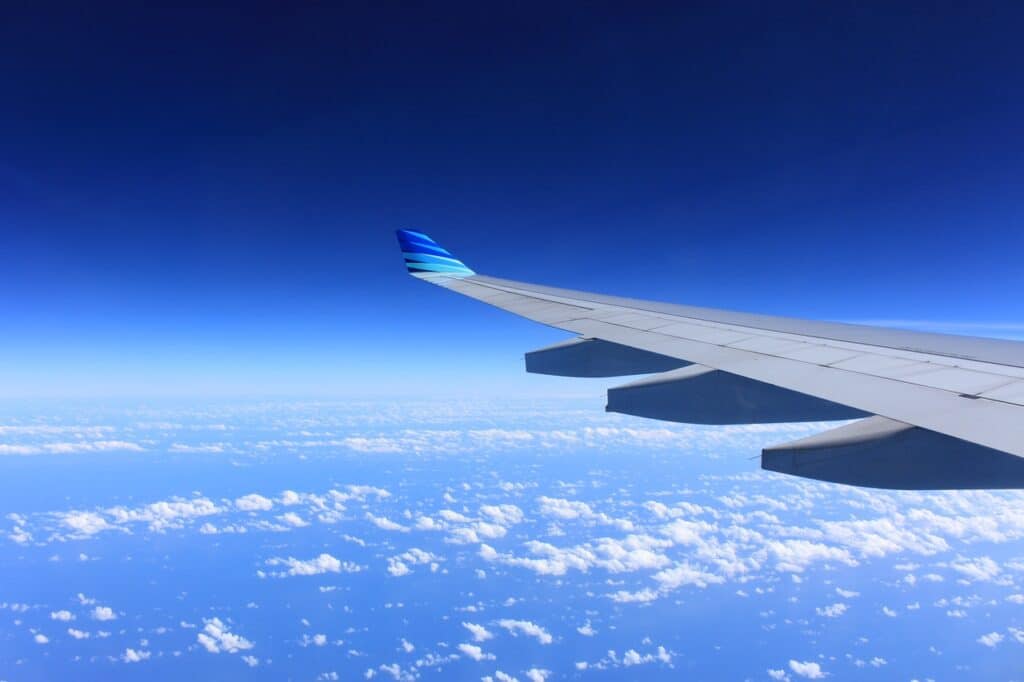Travelling is highly beneficial to your mind, body, and soul. Regardless of the destination, travelling makes you happier, allows you to recharge, and relieves stress and anxiety.
But before you can enjoy a new destination, you need to think about your flight first. This is important because your experience flying can significantly affect your mood for the trip. How can you enjoy a new city or state if you’re too stressed or exhausted about your plane ride?
To experience a stress-free flight, prepare yourself with the following tips.

- Book Smart
Your entire travel experience begins with how and when you book your flight. Flying to another location can cause a lot of stress if you book flights during peak season. In worse cases, this can also mean spending more money.
You can experience a worry-free flight by booking smart. If possible, book your flights during off-peak days — usually on Wednesdays, Tuesdays, and Saturdays. Ticket prices are cheaper during these times of the week, so you can minimize your spending on plane tickets.
Once you’ve booked your flights, check websites to determine which spots of the plane have access to power outlets, more legroom, and other amenities. Doing this simple task allows you to stay comfortable throughout the flight, especially when you’re traveling for long hours.
It’s also important to learn about your airline’s delayed or canceled flight compensation policies. For instance, if you’re flying with TUI, take the time to learn more about TUI flight delay compensation. In this way, you’ll know what to do during setbacks and reduce stress.
- Be Early
There’s nothing more stressful than hearing your name during the final boarding call as you arrive at the airport. When this happens, you’ll have to sprint through security and boarding gates just to make sure that you make it to your flight.
One of the easiest ways to lessen stress when flying is to arrive at the airport early. Ideally, you should be at the airport at least two hours before a domestic flight and three hours when flying internationally. This will give you a lot of time to bypass traffic on the road, long queues at the airport, and any other unforeseen hassles along the way.
Once you arrive at the airport, find a seat in the lounge and relax. If you’re traveling alone, you can catch a movie on your device, check updates on your social media profiles, or read a good book. When traveling with friends and family, now is a good time to talk about your itinerary.
If the security personnel at the airport make you nervous, remember that they’re there to ensure that everyone flies safely. The inconvenience of having them open and check your bags is a small price to pay to ensure everyone’s safety.
- Stay Germ-Free
Arriving at your destination with an allergy or cold can affect your entire trip. How can you enjoy your trip if you have a runny nose and watery eyes? Do you think you’ll have the energy to visit sites if you’re experiencing too many symptoms?
Don’t forget to fight germs whenever you’re flying to reduce your risk of catching illnesses when flying. According to reports, colds spread more quickly on a plane than on the ground, which is why cleanliness should always be your priority when flying. This is especially true if your trip is scheduled during the flu season.
Stay germ-free throughout your flight by wiping your seats and armrests with wipes and making sure that the overhead air vent isn’t blowing on your face. It’s also important to thoroughly and properly wash your hands every 30 minutes to prevent germs from spreading and protect yourself from diseases.
- Prepare for Sleep
You’ll encounter different types of people on the plane. Kids, in particular, tend to get rowdy and noisy during long flights. Oftentimes, their behaviour can cause a lot of stress and prevent you from getting some shuteye.
To enjoy a few hours of sleep when flying, invest in noise-cancellation headphones and eye masks. You can also use a neck pillow to alleviate pain from sore neck and shoulder muscles. For longer flights (at least six hours or more), take melatonin before boarding. Melatonin helps with the timing of your sleep and functions as a “darkness signaller” so you can sleep faster.
- Fight Turbulence
Experiencing turbulence while riding a plane can be nerve-wracking. Turbulence can make you feel nauseous and even prevent you from sleeping.
Turbulence is common when flying, and pilots can’t guarantee that you can’t experience any. You can still experience a stress-free flight even if there is turbulence by calming your nerves. Start by closing your eyes whenever you feel the turbulence and imagining that relaxed energy you often feel when you’re smiling. Taking deep breaths can also help. These activities can release stress from your body instantly.
You can also try mudra, a hand gesture that affects the flow of energy in your body. To do this, touch your thumbs to the tips of each finger for a few seconds. Do it with both of your hands.
Change Your Ways
Contrary to popular belief, having the best trip doesn’t only require allocating sufficient funds and picking the right destination — you also need to carefully prepare for your flight. And if you flight mishaps happen to you, you better be prepared and know how to claim flight delay compensation.
If you often show up at the airport feeling and looking stressed, this article can be of great help. Following all of the tips mentioned here will ensure that your upcoming flight is stress-free and one for the books!

